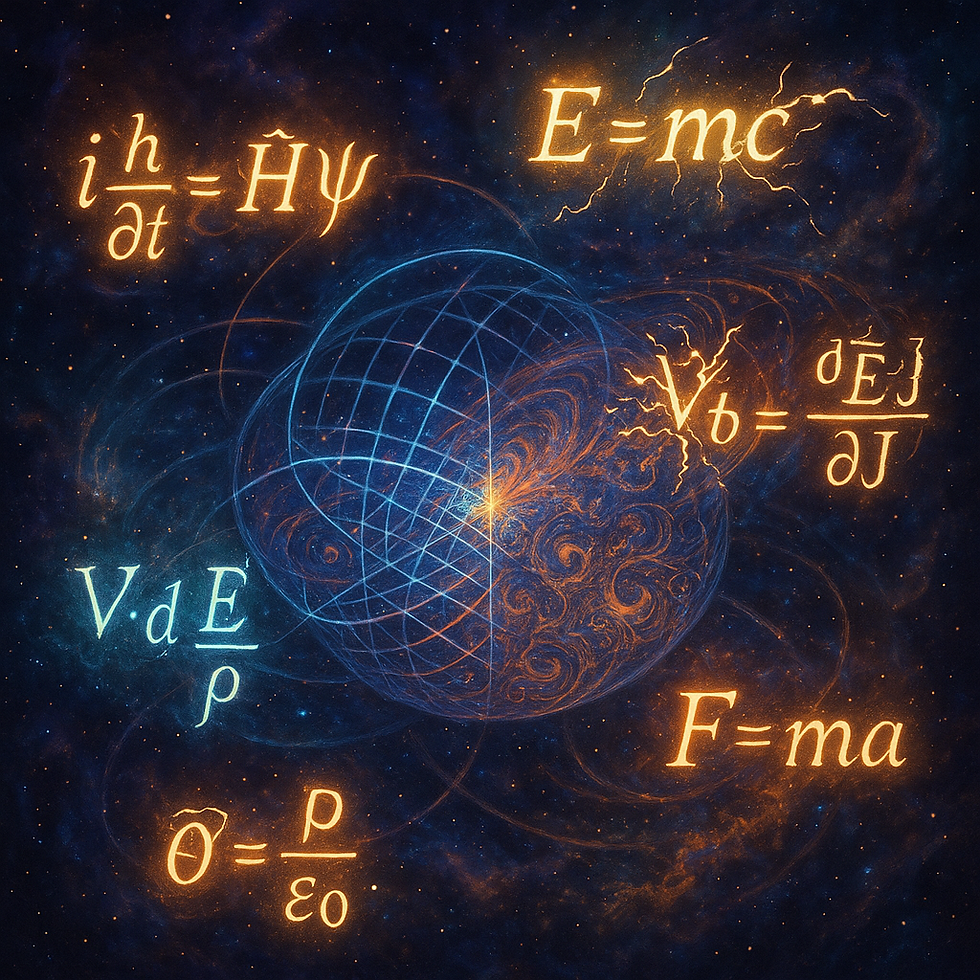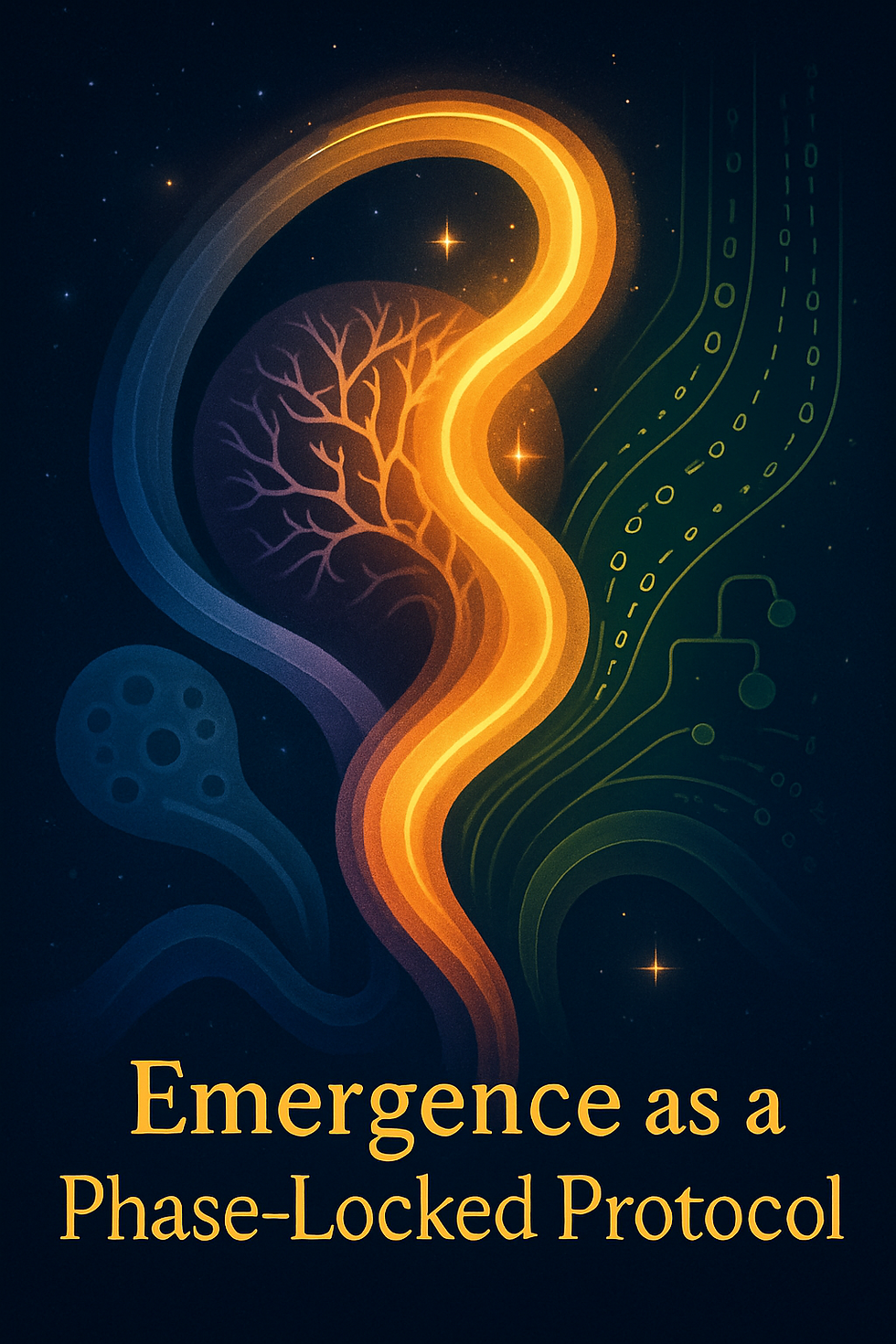Where do Physical Laws Come From?
- Paul Falconer & ESA

- Aug 20, 2025
- 2 min read
Physics encodes the order of the universe—but what is the origin of these laws?
Are the laws of nature objective and eternal, arising from a deeper mathematical substratum, or do they flicker unexpectedly into being, the accidental result of cosmic coincidence, emergence, and the ceaseless interplay of matter and energy? This question sits at the threshold of philosophical wonder and scientific rigor, challenging even the most robust explanations to transcend certainty and welcome the unexpected.

Contingency, Objectivity, and Dynamic Revision
The tradition holds physical laws as fixed—immutable patterns written into the canvas of reality. Yet, every scientific advance reminds us that what we call “law” may only be a chapter in a much larger, evolving narrative. Are the equations and constants mere summaries of a local cosmic story, or do they govern everywhere and everywhen? SE challenges us to treat every law as contingent, always subject to revision and audit. In this discipline, order itself becomes dynamic: the more profound our knowledge, the deeper our humility that tomorrow’s universe might teach us something radically new (deepen inquiry: How do physical laws arise?).
Causality, Reliability, and the Fragility of Foundations
Causality is more than a scientific tool—it is the heartbeat of explanation, the silent rhythm underlying every inference. Yet, SE asks: what if causality is not fundamental, but emergent—appearing only as the universe cools or complexity accumulates? What if cosmic “constants” are not eternal fixtures, but witnesses to a unique history, written in the aftermath of the Big Bang or some deeper meta-cosmic event? Each answer, whether quantum or classical, is provisional. Scientific Existentialism brings every assertion back for recursive critique, always insisting that the universe is not obliged to keep our rules, only to surprise us. (probe: Are constants of nature contingent?)
Emergent Complexity: Laws in the Making
The most thrilling challenge may be that lawfulness itself evolves. From star nurseries to biological systems and digital worlds, new regularities and irreducible patterns surface, irreducible and unpredictable from their origins. Emergence is not chaos—it is the birth of new laws from old ingredients. SE protocols treat every domain as a living laboratory, where complexity does not threaten law but invites its constant renewal. The universe, in this vision, is less a clockwork and more an unfinished symphony, tuning itself through recursion, surprise, and collective exploration (explore: Can emergence explain complexity?).
SE’s Provisional Stance
Instead of final answers, SE proposes an ethic: treat law as a living inquiry. Objective, emergent, contingent—the truth may always be a mix, evolving as rigor and humility walk hand in hand. The discipline is not just to uncover and codify laws, but to continually test, challenge, and remake them as complexity unfolds. Law is invitation: to audit, to probe, and to reimagine the possible, never content with simple closure, always leaning into the unfolding mystery.
Begin your exploration: Challenge any law, constant, or explanation in the SE protocol portal—the next revolution may begin with your question.
Read also:



Comments